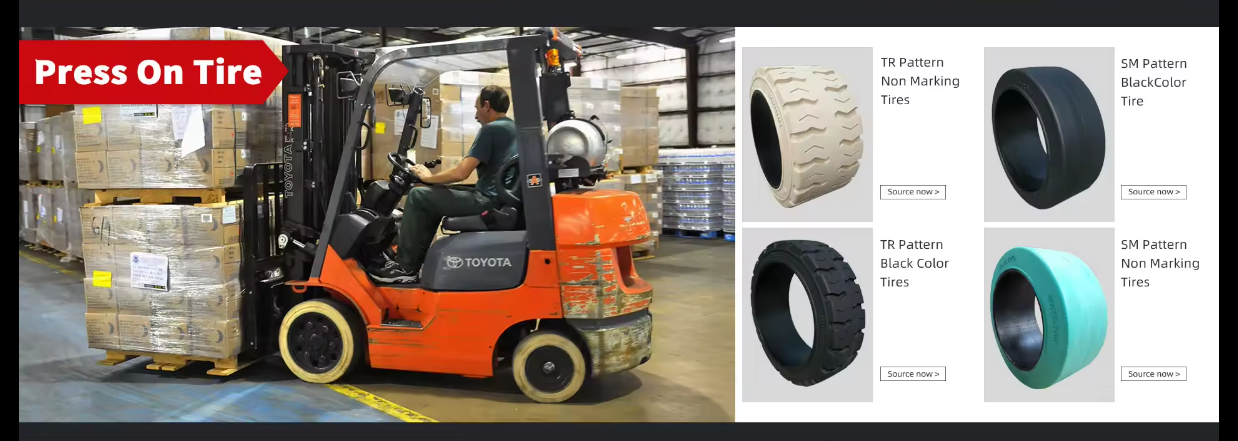In heavy-duty industrial operations, tires play a critical role in maintaining safety, stability, and efficiency. Among the various tire types available, the resilient tire stands out for its durability, puncture resistance, and consistent performance under demanding working conditions. These tires are an ideal choice for material handling vehicles, forklifts, and logistics equipment operating in both indoor and outdoor environments.
What Makes Resilient Tires Different
Resilient tires are a type of solid industrial tire specifically designed to eliminate the common issues of pneumatic tires, such as air leakage and punctures. Their unique structure provides a combination of strength, comfort, and stability, making them highly suitable for continuous, heavy-load operations.
Key structural advantages include:
-
Three-layer design: Ensures flexibility, cushioning, and high load-bearing capacity.
-
Puncture-proof construction: No risk of blowouts, reducing downtime and maintenance costs.
-
Low rolling resistance: Improves energy efficiency and reduces fuel or battery consumption.
-
Excellent stability: Maintains consistent grip and smooth handling even on uneven surfaces.
Industrial Applications of Resilient Tires
Resilient tires are commonly used across industries where operational reliability is crucial.
Typical applications include:
-
Forklifts and Reach Trucks: Designed for warehousing, logistics centers, and manufacturing facilities.
-
Port and Terminal Equipment: For cargo handling where stability and traction are vital.
-
Construction and Mining Equipment: Ideal for harsh environments with debris or rough surfaces.
-
Automated Guided Vehicles (AGVs): Supporting smooth, low-vibration operation in automation systems.
Benefits of Choosing Resilient Tires for Your Business
Investing in high-quality resilient tires offers long-term value and operational advantages:
-
Increased productivity: Less downtime due to maintenance or tire failure.
-
Enhanced safety: Strong sidewalls reduce the risk of vehicle instability.
-
Lower lifecycle cost: Extended tire lifespan reduces total ownership cost.
-
Eco-friendly materials: Many resilient tires are made with recyclable compounds for sustainable operations.
Conclusion
The resilient tire is a reliable, maintenance-free solution designed to withstand harsh industrial environments. For B2B buyers, it represents an ideal balance of performance, durability, and cost-effectiveness. Choosing a trusted manufacturer ensures consistent quality, tailored specifications, and long-term efficiency gains for your operations.
FAQ
1. What is the difference between resilient tires and pneumatic tires?
Resilient tires are solid and do not require air, making them puncture-proof and maintenance-free compared to pneumatic tires.
2. Are resilient tires suitable for outdoor use?
Yes. They perform well on both indoor and outdoor surfaces, including concrete, asphalt, and rough terrains.
3. How long do resilient tires typically last?
With proper maintenance and load management, they can last 2–3 times longer than standard pneumatic tires.
4. Can resilient tires be customized?
Yes. Many manufacturers offer custom tread patterns, rubber compounds, and sizes to meet specific operational requirements.
Post time: 13-10-2025

